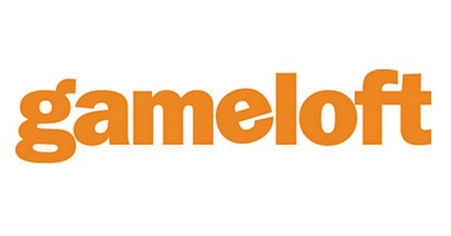pocketgamer消息:盘点手机游戏公司财报 几家欢乐几家愁
如果你想知道手机游戏行业的波动情况,看看最近两周各个公司发布的第三季度财报就晓得了。
日本手机社交游戏平台Moba-ge-Town运营者DeNA公司当属其中最大赢家,该公司出手4.03美元收购美国ngmoco公司后,其第三季度财报也多有亮点,销售额达3.36亿美元,营业收入1.69亿美元。
2009年该公司年度销售总额为5亿美元,预计今年将达12.5亿美元左右。
不过,DeNA销售的强劲增长并不完全来自在线手机社交游戏的虚拟商品交易,而是因Moba-ge-Town平台面向第三方开发商开放才获利无数。
该平台现在已聚集了150名以上的开发商,350余款的外部开发游戏,远比DeNA自己内部可以生产的游戏还要多得多。DeNA通过从这些第三方游戏的销售中抽成,创造了2010年的经济大丰收。
不过,对韩国手机游戏发行商Gamevil来说,虚拟商品交易却是营收增长的重要推手,其利润来源主要是《Zenonia》和《棒球巨星》(Baseball Superstars)这两款游戏的虚拟道具销售。尽管它的iPhone游戏很晚才采用这种运营模式,但添加了虚拟商品交易功能之后,Gamevil的营收就开始见涨。
Gamevil第三季度的销售额达590万美元,上升了14%,净收入为280万美元,增长11%,利润率非常可观。
不过,采用虚拟商品交易模式的游戏也并非一帆风顺。
ngmoco公司在被DeNAn收购之前,曾为打造在线平台,发行高端免费模式游戏的运营模式,交了1340万美元学费。
Glu Mobile也难免类似的遭遇,该公司正从业已十分成功的Java和Brew运营商发行模式向智能手机免费模式转型,在过去两年中连续亏损,今年第三季度也不例外,总营收为1550万美元,亏损了160万美元;预计2010全年亏损将超过1500万美元。
Glu的病根在于,它的智能手机游戏销售额仅占第三季度总营收的15%,微交易和游戏植入广告也仅占四分之一(约60万美元),该公司的业务只有呈指数增长,方有望给下一季度财报添彩。
当然,这些情况并不能说明传统的付费运营模式正在走下坡路,只要开发商拥有足够的运营规模和游戏品牌,利润仍然可以强劲增长。
Gameloft就属于这种类型,该公司第三季度销售额上升了15%,iOS平台和新兴国家市场的销售额达到4900万美元,今年在苹果平台的业务增长更是飙升了80%。
虽然Gameloft的财报成绩是如此光鲜,但该公司仍然得谨重考虑今后的运营方向,因为即使是EA这个西方头号手机游戏发行商,同一时期的销售额也下跌了4%。EA销售额首次呈现颓势,可能与该公司发行作品减少和运营模式缺乏创新不无关系。
在2010年,EA主要专注于掌机游戏品牌和大规模的App Store削价促销活动,却鲜有更叫座的游戏作品问世,相信该公司以2900万美元收购App Store活跃发行商Chillingo,正有借后者之力弥补这一缺憾之意。(本文为游戏邦/gamerboom.com编译,转载请注明来源:游戏邦)
Analysis: Q3 learnings about the rise of freemium versus the App Store challenge
If you want to just see how the mobile games business is in flux, you only need to consider the third quarter earnings figures that the publicly owned companies have been turning out over the past couple of weeks to see the winners and the losers.
Leading the charge, as it has been for the whole of 2010 is Japanese mobile platform holder DeNA.
Now famous for its up to $403 million purchase of ngmoco, the publisher of Moba-ge-Town posted Q3 sales of $336 million and operating income of $169 million.
It expects to post annual sales of around $1.25 billion in 2010, compared to $500 million for 2009.
Maximising micro transactions
The massive growth hasn’t come from the virtual goods it sells in its online mobile social games. Instead, it’s come from opening up Moba-ge-Town as a publishing platform to thirdparty developers.
This now hosts over 150 developers and over 350 externally developed games – clearly far more than it DeNA could produced internally. And DeNA takes a cut of all sales made in these games; hence the massive growth in its financials throughout 2010.
On a different scale, but virtual goods have also been boosting revenues at Korean publisher Gamevil for the past years. Its game series such as RPG Zenonia and baseball titles such as Baseball Superstars have always made the majority of their profit on virtual items sales. Despite being slow to integrate such methods into its iPhone games, Gamevil has now done so, boosting revenues.
Its Q3 saw sales up 14 percent to $5.9 million, and net income up 11 percent to $2.8 million: a healthy margin.
A thousand cuts
However, the virtual goods games isn’t as easy as that.
As was demonstrated by ngmoco prior to its DeNA takeover, it had lost at least $13.4 million experimenting with business models, building out its online platform and releasing highend freemium games.
It’s a similar story over at Glu Mobile, which has been managing the transition from a fairly successful Java and Brew carrier-focused publishing model to a smartphone freemium model.
It’s been posting losses for over two years and Q3 2010 was no different, with a loss of $1.6 million on revenue of $15.5 million. Indeed, it’s projecting an annual loss for 2010 of over $15 million.
Glu’s problem is that with smartphone games sales in Q3 only consisting of 15 percent of overall revenue, and micro transaction and in-game ads only being a quarter of that (around $600,000), it will need a massive expansion of this business in order to generate decent headline returns.
Paint it black
Yet this isn’t to say that the traditional paid for business model is in decline. If you have sufficient scale or sufficient brands, it can be strongly profitable.
For example, Gameloft saw its Q3 sales rise 15 percent thanks to strong iOS and emerging markets’ business to $49 million. Indeed, it says its Apple business has risen 80 percent during 2010; obviously from a small base, but significant nevertheless.
But though it’s likely to post its best annual figures to date for 2010, even Gameloft will have to think seriously about its future operations following the shock news that arch rival EA Mobile saw its Q2 (same calendar period, different nomenclature) sales fall 4 percent.
It’s the first time in recent memory that EA – which is the west’s biggest mobile publisher – has posted a year on year decline in sales, something that points to a combination of a lack of releases and a lack of innovative business models.
During 2010, EA has relied on its console brands and largescale promotion by means of App Store price cuts rather than releasing exciting content; something its up to $29 million purchase of hyperactive App Store publisher Chillingo is expected to reverse.(source:pocketgamer)










































 闽公网安备35020302001549号
闽公网安备35020302001549号